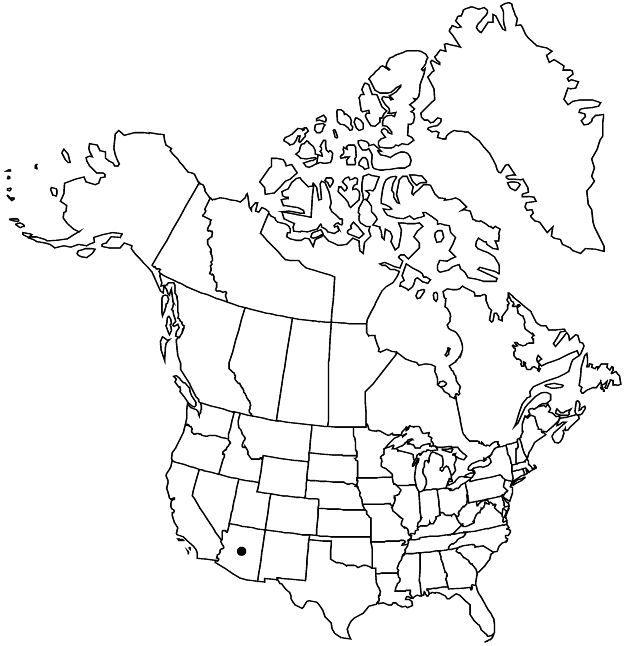Mentzelia aspera
Sp. Pl. 1: 516. 1753.
Plants annual, without caudices or tubers. Stems erect to decumbent, to 30 cm. Leaves: petiole 10–65 mm; blade hastate to ovate, usually basally lobed, sometimes unlobed, to 18 × 10 cm, base cuneate to truncate, margins serrate to crenate, apex acute. Pedicels (fruiting) 1–3 × 2 mm (often appearing absent because thick and continuous with capsule). Flowers: petals orange or yellow, 5–15 × 3–7 mm, apex cuspidate, hairy abaxially at apex; stamens 20–30, 5 mm, filaments heteromorphic, 5 outermost narrowly spatulate, inner filiform; style 5 mm. Capsules subcylindric to clavate, 9–30 × 3–3.5 mm, base tapering gradually, capsule and pedicel not well-differentiated. Seeds 5–9 per capsule, pyriform to oblong, without transverse folds. 2n = 20.
Phenology: Flowering Aug–Oct.
Habitat: Arroyo and canyon bottoms, grasslands, desert scrub, riparian cottonwood and willow vegetation.
Elevation: 100–2000 m.
Distribution

Ariz., Mexico, West Indies, Central America, South America, in Atlantic Islands (Cape Verde Islands)
Discussion
Mentzelia aspera is uncommon in southern Arizona. It is the most widespread species of the genus and is regarded as weedy by some authors (H. J. Thompson and A. M. Powell 1981).
Selected References
None.